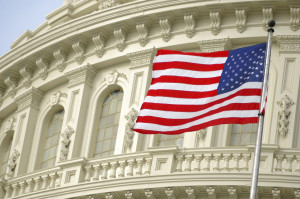
The key to improving government is to strengthening—and valuing—excellence in the civil service.
During my five and a half years of service as Chair of the Administrative Conference of the United States, I observed closely how bureaucracy functions. What I found during that time is that career officials—the indispensable professionals on which government vitally depends—are being discouraged, ignored, or even displaced. In their stead, federal agencies are relying on a private contractor regime that far outstrips members of the civil service in numbers and, increasingly, in influence. In many respects, we are seeing core officials lose control, at all levels, of the system that administers public policies and delivers government services.
Today, government needs an overhaul, not just a tune up. We need to rebalance the civil service system, while appreciating the limits of the possible. Of course, reversing course in how government programs are administered, after many decades of outsourcing government administration to private contractors, may seem a quixotic venture. But it is also compellingly practical. Too many government failures have their causes in the inability of the permanent government—the civil service—to control the situation.
Among the more visible recent fiascoes include the fumbled initial rollout in 2013 of the website for citizens to sign up for insurance under the Affordable Care Act. Still less salient but highly consequential examples include the $3.1 billion in fraudulent federal tax “refunds” that the Internal Revenue Service paid out in the 2014 tax season. At the state and local level, similar failures—the drinking water crisis in Flint, Michigan and the management challenges in the Texas foster care system, to pick just two examples—derive from a lack of adequate government oversight.
It is possible to address these failures while still accepting the reality of a “blended” workforce of civil servants, political leaders, contractors, and state or local officials. We need, though, to maintain a career service capable of managing the overall process.
Valuing Bureaucracy: The Case for Professional Government emphasizes the connection between physical and human infrastructure and shows how one often depends on the other. At its core, good government requires competent and dedicated personnel. They are resources to be nurtured and protected. They are assets, just like bridges, roads, and the many other public services that government provides.
In an era of increasing reliance on public-private partnerships, excellence among the career service has only grown even more crucial. Such partnerships are tricky to manage, and government often loses out when the bargainers on its side of the table do not measure up to the talent on the other side. Even a function such as building or leasing a facility to a private sector provider is complicated work. To get a fair deal for the public, we need to attract and keep in government what former Secretary of State George Shultz has called “A” players.
Private investors understand the need for “A” players on their team, and the smart investors want essentially the same thing on the government side too. That kind of equivalence best ensures competitive deals that are competently administered. Failure to achieve such a high level of competence on the government side can often result in litigation, wasted time, and bruised reputations with no real winners on either side of the partnership.
Yet we are losing too many longtime, experienced civil servants with specialized expertise, and we are not paying enough attention to how we will replace them. This is a problem that predates the Trump Administration. Four years ago, the Partnership for Public Service reported that two-thirds of the Senior Executive Service—the elite corps of top government managers—were eligible to retire within the next five years.
We need pragmatic action to maintain a pipeline of excellent government leaders. Yes, balanced reforms to the civil service system are needed. We should also always look for ways to streamline government and improve its performance. In the process, we can and should still rely on private contractors. We just need to use them more sparingly and thoughtfully, keeping inherent government functions, and the pivotal responsibilities of managerial oversight, in the hands of experienced professionals in the civil service.
If I could wish for one thing, it would be to give the civil service some of the respect and admiration that our military so justly receives. Not everyone who works for government is putting themselves in harm’s way, of course. But all have taken the oath to uphold the Constitution and perform a public service, often at considerable personal sacrifice. I remember a time when the military was denigrated—during my military service. That was a terribly unfair and disruptive period, but the contrast between public attitudes toward the military then and now shows how much the public’s views can change. Now it is time for the civilian service to share some of the public’s respect.
Doing government work is not easy, and it is only getting harder. We can and must restore government, even while still accepting shared responsibility with the contractor community and the private sector. The key to better government depends on valuing bureaucracy and taking steps to maintain excellence within our nation’s civil service.
This essay is part of a nine-part series, entitled Valuing Professional Government.




